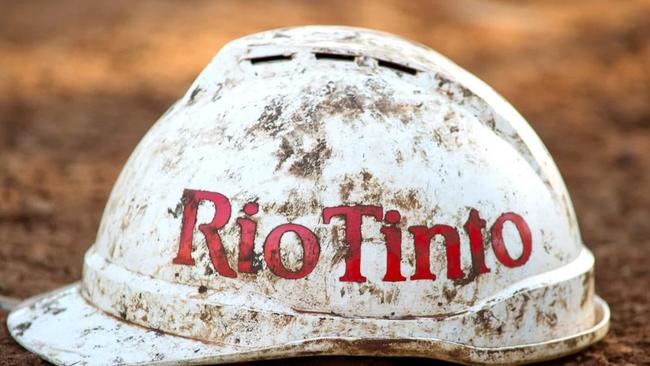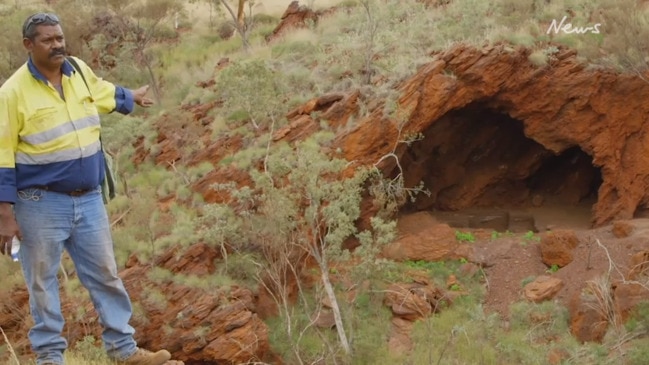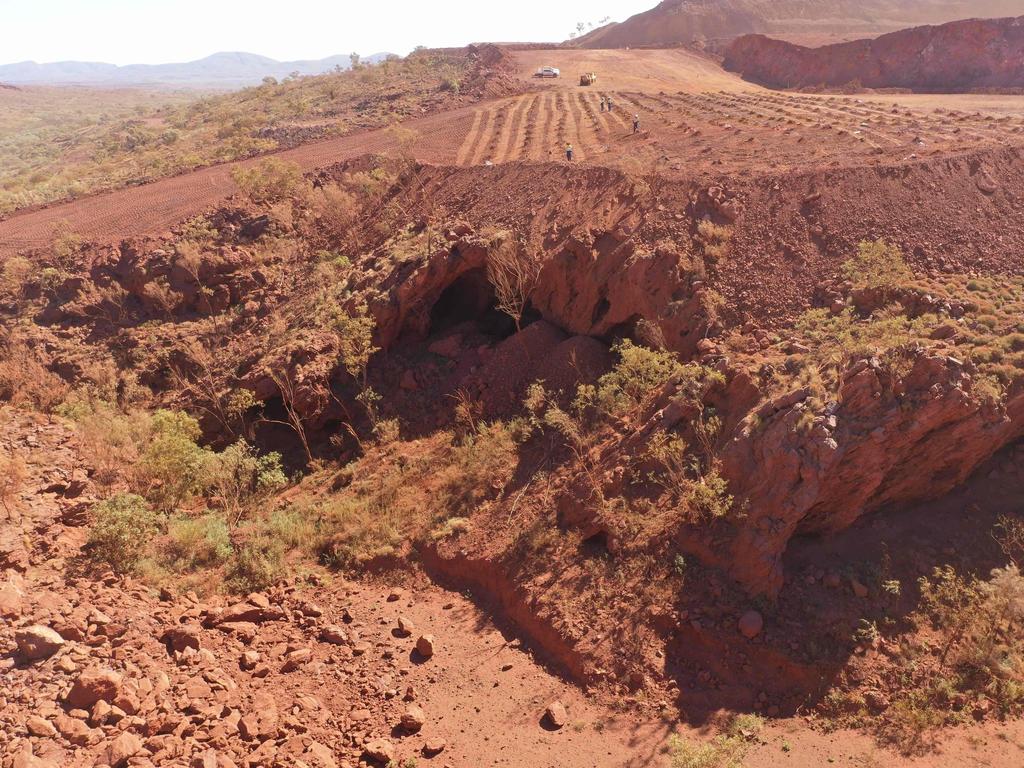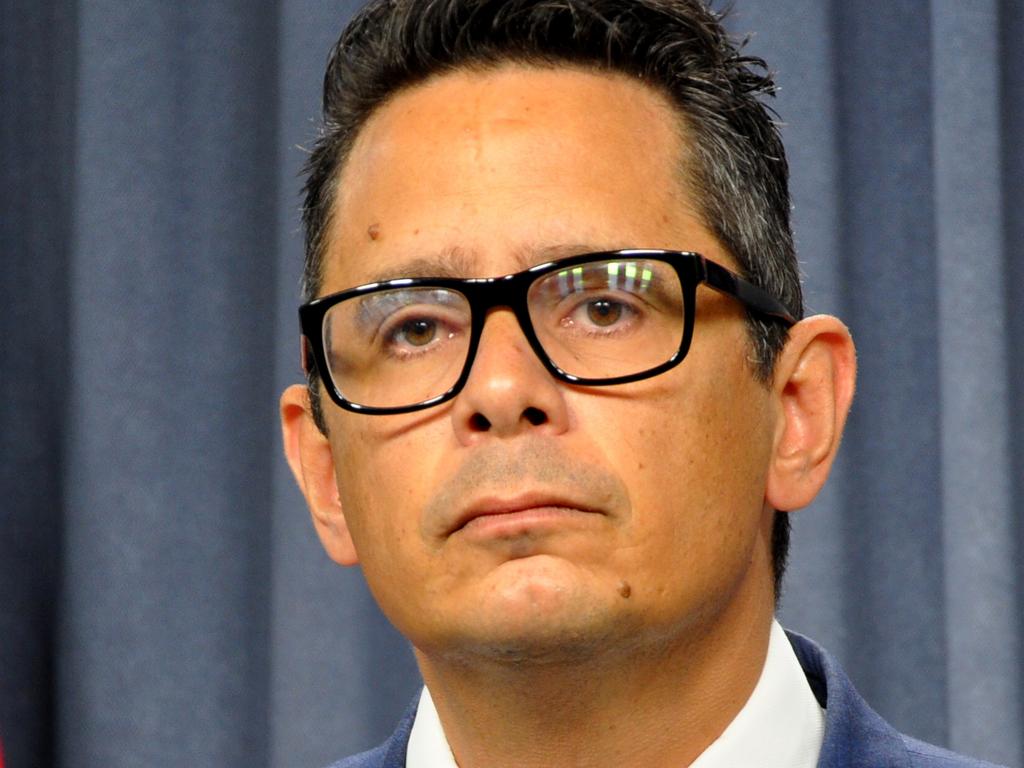Rio Tinto overhauls Indigenous relations with sweeping changes
The mining giant promises to increase economic benefits flowing to traditional owners in the Pilbara after the Juukan controversy.

Mining giant Rio Tinto has promised to increase the economic benefits flowing to traditional owner groups in the Pilbara as part of a sweeping overhaul of its agreements following the Juukan Gorge controversy.
A letter to a dozen Pilbara Indigenous groups from Rio Tinto’s new interim iron ore chief Ivan Vella, obtained by The Australian, also details pledges from the mining giant to release Indigenous groups from gag orders as well as the potential public release all agreements.
The letter is the first written commitment made by Rio Tinto to the Pilbara Indigenous groups since the company’s destruction of the Juukan Gorge rockshelters triggered a worldwide firestorm of condemnation and forced the resignations of chief executive JS Jacques and two of his most senior executives.

The company flagged that there would be an even greater focus on Indigenous businesses and employment under its revised agreements, pledging a “more impactful realisation of economic and social benefits”.
The revised agreements would aim “to maximise the full range of benefits of economic and social opportunities for the (Indigenous) group as a result of our operations on (their) country”.
The letter also said Rio Tinto would introduce new mechanisms into its agreements to ensure the company could better respond to any new information that may emerge about cultural heritage sites, including those affected by the contentious Section 18 approvals that gave Rio Tinto the legal rights to destroy the rockshelters.
“We will support a review of the cultural heritage management and protection measures for a cultural heritage site with the [traditional owners] when material new information is shared on the site,” the letter said.
“We will also seek to agree an appropriate mechanism in our revised agreement so that there is a clear path for resolution of any differences of view that may emerge.”
The cultural significance of the Juukan Gorge caves evolved in the years after Rio Tinto received WA government approval for the rockshelters’ destruction in 2013, with a salvage dig at the caves unearthing signs of human habitation dating as far back as 46,000 years.
A spokesman for Rio Tinto confirmed the veracity of the letter.
The mining giant also told its Indigenous partners that it was reassessing all activities with the potential to impact heritage sites, a potentially massive undertaking given the scale of Rio Tinto’s Pilbara iron ore operations and the thousands of heritage sites spread across the region.
“This process has already commenced. It involves a combination of assessment of the potential impact to the site, as well as an assessment of heritage significance,” the letter said.
“Where information is incomplete or not current, we will consult with you. This will occur both as part of our regular engagements and further as needed.”
The move to flag the potential public release of the revised agreements is a major departure from previous practice across the mining industry, with those agreements historically guarded closely.
Mr Vella said in the letter that the miner recognised that some parts of the agreements, such as culturally sensitive information, that would have to remain confidential.
The letter also confirmed that Rio Tinto had released Indigenous groups from the clauses that had previously prevented them from speaking out on cultural heritage matters or from applying for statutory protection of any cultural heritage sites.
The letter has been sent to all 12 of Rio Tinto’s Indigenous partners in the Pilbara, including the traditional owners of Juukan Gorge, the PKKP.
Other groups to receive the letter include the Yinjibarndi, the Gumala, and the Wintawari Guruma.
WA Treasurer and Aboriginal Affairs Minister Ben Wyatt said of Rio’s move: “This is a welcome step in the right direction, one that I hope will assist in rebuilding trust and respect, with a renewed focus on Aboriginal heritage. Rio Tinto has made a significant contribution to Aboriginal employment and economic development of Aboriginal communities. I hope to see those opportunities grow as part of this commitment.”






To join the conversation, please log in. Don't have an account? Register
Join the conversation, you are commenting as Logout